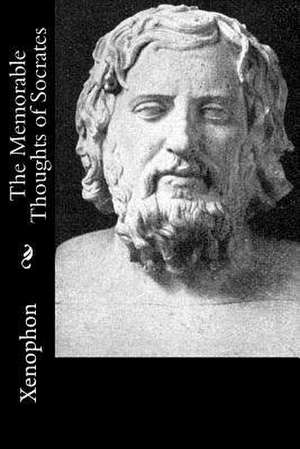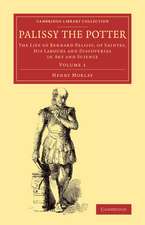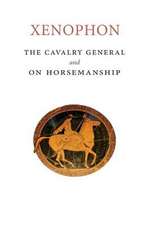The Memorable Thoughts of Socrates
Autor Xenophon Traducere de Edward Byssheen Limba Engleză Paperback
| Toate formatele și edițiile | Preț | Express |
|---|---|---|
| Paperback (6) | 66.93 lei 38-44 zile | |
| – | 67.91 lei 3-5 săpt. | |
| CREATESPACE – | 83.88 lei 3-5 săpt. | |
| Watchmaker Publishing – 15 apr 2010 | 66.93 lei 38-44 zile | |
| Indoeuropeanpublishing.com – 28 feb 2010 | 99.81 lei 6-8 săpt. | |
| Book Jungle – 7 iun 2009 | 123.98 lei 6-8 săpt. | |
| TREDITION CLASSICS – 30 noi 2011 | 146.29 lei 6-8 săpt. |
Preț: 67.91 lei
Nou
Puncte Express: 102
Preț estimativ în valută:
12.100€ • 14.12$ • 10.93£
12.100€ • 14.12$ • 10.93£
Carte disponibilă
Livrare economică 31 martie-14 aprilie
Preluare comenzi: 021 569.72.76
Specificații
ISBN-13: 9781539562528
ISBN-10: 1539562522
Pagini: 134
Dimensiuni: 152 x 229 x 7 mm
Greutate: 0.19 kg
ISBN-10: 1539562522
Pagini: 134
Dimensiuni: 152 x 229 x 7 mm
Greutate: 0.19 kg
Notă biografică
Xenophon of Athens (c.¿431 BC - 354 BC) was an ancient Greek philosopher, historian, soldier, mercenary, and student of Socrates. As a soldier, Xenophon became commander of the Ten Thousand at about 30, with noted military historian Theodore Ayrault Dodge saying of him, "the centuries since have devised nothing to surpass the genius of this warrior." He established the precedent for many logistical operations and was among the first to use flanking maneuvers, feints and attacks in depth. He was among the greatest commanders of antiquity. As a historian, Xenophon is known for recording the history of his time, the late-5th and early-4th centuries BC, in such works as the Hellenica, which covered the final seven years and the aftermath of the Peloponnesian War (431-404 BC), thus representing a thematic continuation of Thucydides' History of the Peloponnesian War.
As one of the Ten Thousand (Greek mercenaries), Xenophon participated in Cyrus the Younger's failed campaign to claim the Persian throne from his brother Artaxerxes II of Persia. He recounted the events in Anabasis, his most notable history. Like Plato, Xenophon is an authority on Socrates, about whom he wrote several books of dialogues (the Memorabilia) and an Apology of Socrates to the Jury, which recounts the philosopher's trial in 399 BC.
Despite being born an Athenian citizen, Xenophon was also associated with Sparta, the traditional enemy of Athens. His pro-oligarchic politics, military service under Spartan generals in the Persian campaign and elsewhere, and his friendship with King Agesilaus II endeared Xenophon to the Spartans. Some of his works have a pro-Spartan bias, especially the royal biography Agesilaus and the Constitution of the Spartans. Xenophon's works span several genres and are written in plain-language Attic Greek, for which reason they serve as translation exercises for contemporary students of the Ancient Greek language. In the Lives and Opinions of Eminent Philosophers, Diogenes Laërtius observed that, as a writer, Xenophon of Athens was known as the "Attic Muse," for the sweetness of his diction.





















